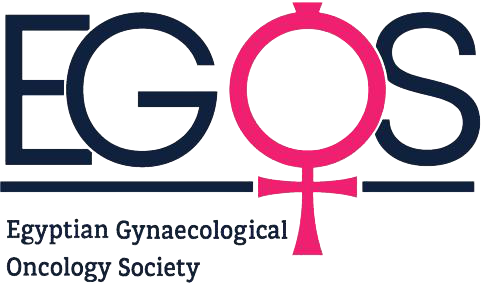The Egyptian Gynaecological Oncology Society (EGOS) is a multi-disciplinary team of gynaecologists, onco-surgeons, radiologists, and pathologists, working towards providing quality care for women with gynaecological cancers in Egypt. EGOS is registered at the ministry of social solidarity in Egypt as a non-governmental civil society member under No. 11402 of 2021.
The “ankh” or “key of life” was chosen as the logo of The Egyptian Gynaecological Oncology Society (EGOS). It is an ancient Egyptian hieroglyphic symbol that was most commonly used in writing and in Egyptian art to represent the word “life” and, by extension, as a symbol of life itself.

Our Mission
Transform gynecologic cancer care in Egypt and the region through collaboration to improve prevention, education, training, research, and public awareness.
Our Vision
we envision Egypt, a country where all gynecologic cancer patients have universal access to quality cancer care
EGOS Board
ElSaied Abdelhady Hassanien – 1
EGOS President
Gynecologist
Mansoura University
Ahmed Sektory Mahmoud Ahmed – 2
EGOS Vice President
Gynecologist
Cairo
Basel Refky Abdelfattah Ahmed – 3
EGOS General Secretary
Onco-Surgeon, Oncology Center, Mansoura University (OCMU)
Noha Talaat Abdelkawy Elsayed – 4
EGOS Treasurer
Member at the National Council of Human Rights
Executive director of Fundraising at the new National Cancer Institute
Amr Shafik Tawfik Saad – 5
Oncologist
Ain Shams University
Ashraf Mohamed Nasr Refaey – 6
Gynecologist
Zagazig University
Naemat Elsayed Elsayed Hegazy – 7
Oncologist
Alexandria University
Hisham Ahmed El-Sayed Abou-Taleb – 8
Gynecologist
Assiut University
Ahmed Mohamed Ibrahim Osman – 9
Ain Shams University
Gynecologist
Emad Eldin Abdallah Saied Shash – 10
Oncologist
National Cancer Institute (NCI)
Khaled Abdelaziz Mohamed Kamal – 11
Oncologist
Ain Shams University
Khaled Mohamed Ahmed Gaballah – 12
Onco-Surgeon
Oncology Center, Mansoura University (OCMU)
STRATEGIC PLAN
Early detection:
- To develop gynecologic cancer screening programs across member institutions and provide regular training courses for health professionals.
Care:
- To disseminate the best practice guidelines for gynecologic cancer across the nation.
- To facilitate international collaboration in gynecologic cancer control.
- To prioritize gynecologic cancer care on the national cancer control plan.
- To establish partnerships with cancer organizations, the media, technology providers, regional professional organizations, policymakers, the private sector, healthcare workers, community groups, and non-communicable disease alliances.
- To ensure access to affordable oncology treatment approaches to gynecologic cancer patients.
- To engage policymakers and stakeholders to increase the number of radiotherapy machines across Egypt and decrease waiting times for gynecologic cancer patients.
- To establish gynecologic cancer registration across the nation.
- To establish functioning multidisciplinary tumor boards across member institutions by capacity building.
- To implement centers of excellence in gynecologic cancer management.
- To support oncology nursing programs to establish this professional group’s contribution to gynecologic cancer management and control in the region.
- To improve access to affordable and safe essential medicines as analgesics and primary cancer drugs.
Education and training:
- To support the next generation of oncology professionals who manage gynecologic cancer.
- To support and maintain the development of training programs in gynecologic oncology with member institutions and elsewhere.
- To establish a virtual education and training platform for gynecologic oncology.
- To organize symposia, workshops, meetings, and conferences in keeping with mentorship, education, and training.
- To develop a national gynecologic oncology curriculum for specialty training.
Research:
- To coordinate research planning related to prevention, early detection, cure, and palliation of gynecologic cancer.
- To foster Egyptian gynecologic cancer research findings dissemination through scientific conferences, peer-reviewed journals, traditional media, and social media.
Advocacy:
- To raise public awareness of the importance of early recognition and treatment of gynecologic cancers.
- To fight the myths associated with gynecologic cancer diagnosis and management.
- To provide opportunities for educating non-health professionals about gynecologic cancer prevention and control, including the media/journalists, artists, social scientists, educators, nutritionists, advocates, and survivors.